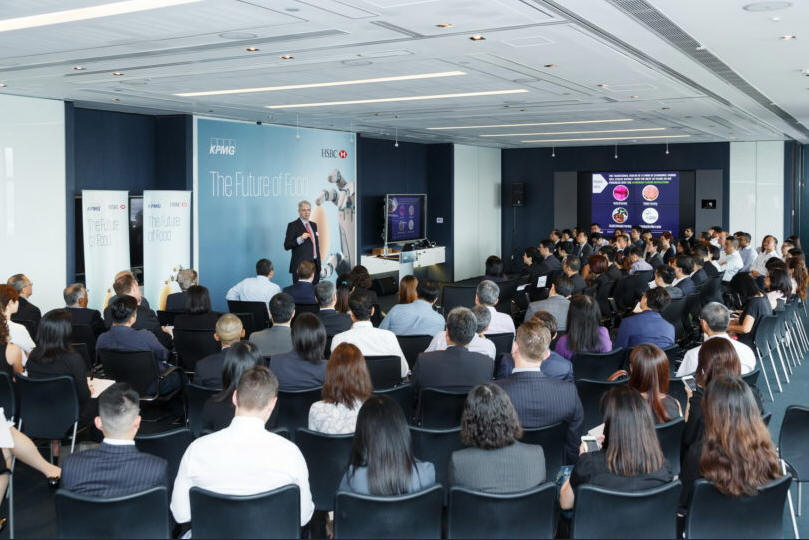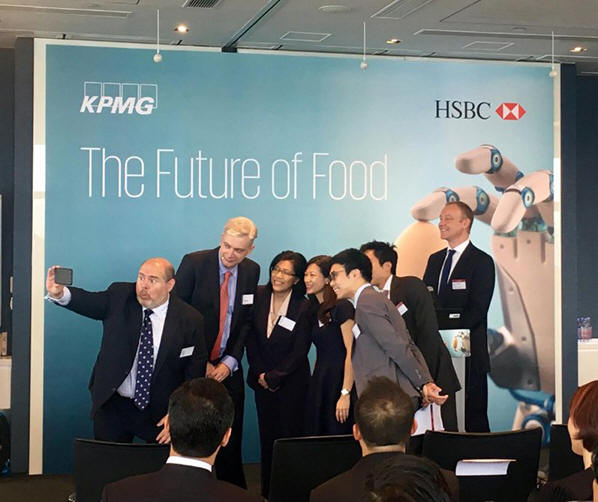 |
| Reviews and Templates for Expression We |
Pivoting the agri-food sector’s culture is critical to delivering a more sustainable future for New Zealand

‘Disruption’ must be one of the most used words in the English language currently. Read a paper, visit a website, watch a news bulletin and you are almost certain to see novel solutions that are making claims about fundamentally disrupting how we manage our health, our lifestyle or the way we interact with each other.
The agri-food sector faces greater disruption than the rest of the economy. Agriculture has been a slow adopter of digital technologies. Many practices have not changed for decades (if not centuries) meaning basic fundamentals, such as what constitutes a farm, what is grown, how it is grown and what the produce is turned into are all being targeted by innovators. The sector is facing the first global agrarian revolution.
Despite this barrage of impending change, the majority of farmers in the pastoral sector still tell us that they believe they will be able to carry on farming the same products in the same ways as they have done historically; complacent in a belief that as food producers there will always be a market for the food they produce, and complacent in a belief that a history of success will deliver success in the future.

New Zealand farmers have historically focused on growing volume and been successful in lifting productivity. This has come from intensifying farming systems through higher stocking rates, enhanced genetics and utilising inputs such as fertilisers and supplementary feed. The sector has led New Zealand in productivity improvement in recent decades but this has placed stress on the environment and water quality.
There is no doubt the world needs more food, the question for the agri-food sector in New Zealand is whether customers will be happy to pay what they have historically paid for our products when they have a wider range of options available to them. With some new options having attributes our traditionally produced products struggle to compete with, there is likely to be increasing pressure on the prices these products will be able to command.
Think about the dairy sector. Historically the fridge has contained milk, cheese, yoghurt and other products – 99% of which have been produced from dairy cows. That is changing as milk products produced from other animals, a range of plants, as well as cultures, become commercially available to consumers. Where there was once one choice for dairy products there may soon be ten, many of which will carry the “clean food” tag. Clean food is highlighted by an enhanced environmental and water profile, no animal welfare challenges, ethical treatment of people and food safety assured in a way that can only be achieved in a tightly controlled manufacturing environment.
The emergence of new products with attributes that appeal to many consumers will put pressure on the prices that traditionally produced products are able to command. Complacency is no response to the challenge the agri-food sector is facing. The only viable option is to see every disruption as an opportunity to capture more of the value in the products that we grow.

From KPMG’s discussions with industry leaders in preparing the 2017 KPMG Agribusiness Agenda report, it is apparent that many believe the impacts of pursuing volume at any cost are becoming too significant for the wider community to accept. Many suggest the industry’s license to operate is at greater risk today than it has been at any time in the past. The chasm between the agri-food sector and the rest of New Zealand grows deeper with every news headline about water pollution, animal neglect or loss of our natural biodiversity. These stories create perceptions that are difficult to change and will ultimately shape regulation that national and local government will need to impose on the sector, as the patience and trust of the wider community are eroded by farmers that fail in their duty of care to the environment, water and their animals.
The vision we articulate for New Zealand’s agri-food sector in the 2017 KPMG Agribusiness Agenda is as that of an artisan producer of premium, safe and authentic food and beverage, fibre and timber products. The sector cannot and should not aspire to feed the world.
While still a large amount, we only produce enough food to feed 40 million people, which is still about the size of California. So New Zealand is a small producer on a global scale by any metric. Our extensive use of pasture based agricultural systems gives our products many attributes that consumers around the world desire. Free-range grass-fed appears to be increasingly important to many consumers; food grown the way we have understood it should be grown since we were very young children.
The value of this attribute was recently highlighted when UK supermarket chain, Asda, announced a range of premium priced free-range milks, where the cows have access to grass ‘at least’ 50% of the time. Our agri-food system is inherently artisan and we have just failed to recognise it as such.
We need to capture more of the value our products generate globally. KPMG estimates suggest that the $37 billion of agri-food exports from New Zealand generate over a quarter of a trillion dollars by the time they are sold through retail outlets, restaurants or hotels around the world. There are two factors that determine how much value we are able to capture. How we choose to participate in our value chains and the authenticity of the stories we place around the products.
In a disrupting world, I believe that the focus for New Zealand’s agri-food sector must be in providing a small part of the diet to the most affluent consumers around the world. By this I mean what consumers choose to eat when they are looking for unique and exciting products for special meals, events and celebrations; and what they eat when they are looking for food to reflect their values and aspirations.
To achieve this we must deliver authentic stories to our customers who are the ultimate consumers of the product. We must create a narrative about what is at the centre of their plate. Achieving this requires that our products be sustainable in the widest possible sense. Ensuring our environmental assets are used in a balanced, and preferably restorative manner, is a critical part of sustainability, but too many assume this is the whole story.
Water quality was highlighted as the factor that will shape the industry’s license to operate for the foreseeable future given the focus it is likely to attract during this year’s election. The message we have received from industry leaders was that swimmable must mean truly swimmable and not ‘scientifically swimmable’ at a future point in time. Bold action is required to ensure community expectations are met in relation to water quality. If water quality is not addressed to community satisfaction it will not be possible to create a truly authentic story that will resonate with premium consumers.
Truly sustainable food production systems will also ensure that animals are cared for in a respectful way; that people employed in the sector are kept safe, rewarded fairly for their contribution and given opportunities to grow and develop.
Organisations also need to be active and positive contributors to their community, engaging in programmes that share the benefits obtained from the use of the country’s natural capital.

Evidence also suggests that an organisation can have a deeper story if it takes actions to be good for the world; given that at the present time we can’t feed more than California, we believe that agri-food companies need to think about how they engage their people and intellectual property to help under nourished communities around the world to feed themselves and secure economic opportunities.
KPMG believes that New Zealand could become the world’s leading producer of natural, authentic food, however, this requires a significant pivot in focus. We can’t produce food that will meet this standard if we are solely focused on volume, so the focus needs to be on producing food that is able to command a premium. The sector needs to be intent on solving a consumer’s most significant problems rather than trying to satisfy the short term returns desired by producers. A more prosperous future is attainable but relies on a change in culture amongst farmers, processors, exporters, marketers and every other person directly connected with the sector.
We grow food for people. Food is the most intimate thing we use as human beings. Every day, we put it inside our bodies and it shapes how we function and interact with each other. The only future for New Zealand’s agri-food sector is having a culture built around delivering authentic experiences for each and every person that has the opportunity to share New Zealand’s food and beverage, fibre and timber products.
|
|
|
|
Copyright remains with the original authors |